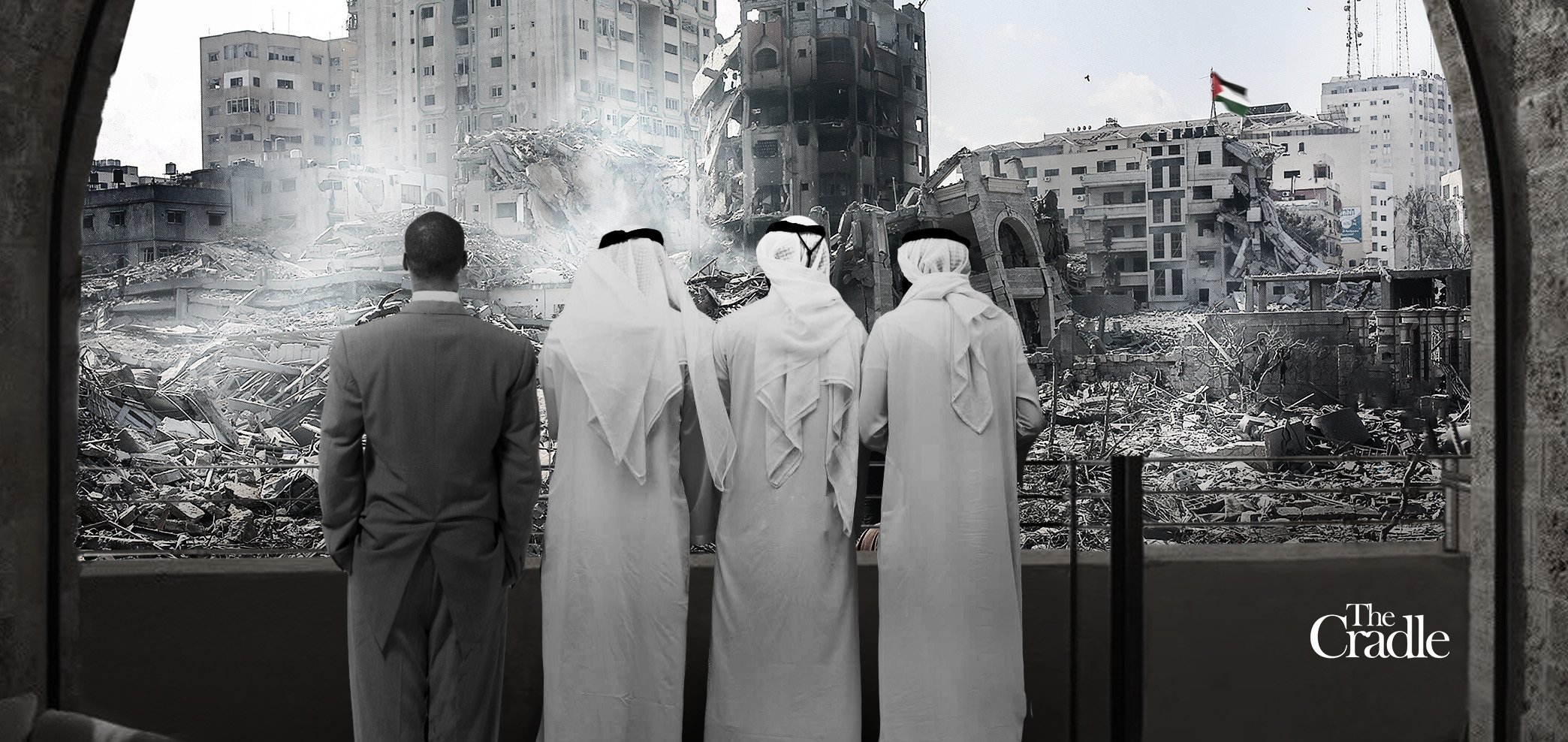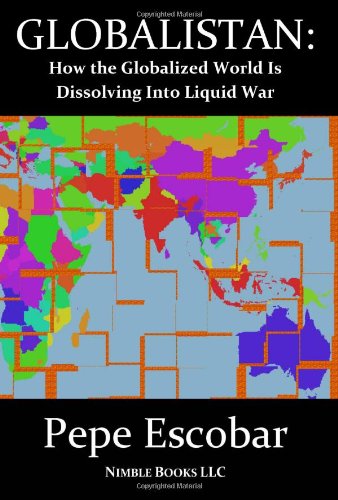What Arab states can do to punish Israel

 Karim Shami
Karim Shami
The Cradle
DATELINE: NOV 30, 2023
On 10 November, barely a month after the launch of the Palestinian resistance's Al-Aqsa Flood operation and the onset of Israel's brutal assault on Gaza, the Saudi foreign ministry announced an extraordinary joint Arab League and Organization of Islamic Cooperation (OIC) summit in Riyadh.
Originally scheduled separately, the decision to combine the meetings was reportedly due to a lack of consensus among Arab states on how to collectively respond to Israel’s wildly disproportionate aggression against Gaza's 2.3 million civilians.
Reportedly, Arab nations could not agree on a number of contentious measures that some of their members had recommended. These included decisions to prohibit the use of regional US military bases to supply arms to Israel, suspend all Arab relations with Israel, and impose an oil embargo against the occupying entity.
A very ordinary summit
Despite widespread sentiment against Israeli aggressions across West Asia and the wider Islamic world, the summit, as many expected, concluded without concrete actions against Israel, underscoring the weakness and unwillingnessof 22 Arab leaders to confront Israel and its western allies.
It raises a pivotal question: In lieu of a collective decision by the Arab League, what can individual Arab nations do to support Palestine, and why haven't they done these things already?
To unravel the complexities of Arab geopolitics, and for the sake of simplifying the region's various world views and priorities, Arab states can be categorized into three main political groupings - each influenced by non-Arab actors: the US, Turkiye, and Iran.
The foreign policies of Saudi Arabia, the UAE, Kuwait, Bahrain, Oman, Jordan, Egypt, Morocco, and Djibouti - most governed by hereditary monarchies - align closely with the US and the west. Despite hosting numerous US military bases, these states, paradoxically, could play a substantial role in supporting Palestine without resorting to conflict.
Morocco, the UAE, Bahrain, Sudan, Egypt, and Jordan all have economic, political, and security relations with Israel. Yet, unlike distant Latin American countries, none have severed ties, although Bahrain did suspend its economic ties.
Instead, the Israeli embassies in Jordan, Morocco, Egypt, and Bahrain were evacuated by the order of Foreign Minister Eli Cohen and the Ministry's Director-General due to massive protests in support of Palestinians.
The most strategically important states in this grouping are Jordan and Egypt, both of which share borders with Israel, and have the longest-established relations with Tel Aviv.
Egypt, a key player since the Camp David Accords were signed in 1979, has the ability to immediately influence events in Gaza. But from presidents Anwar Sadat to present day's Abdel Fattah el-Sisi, Cairo has instead worked overtime to safeguard Israel’s southern border and actively engages in energy dealsto boost their mutual economies.
If it chooses to do so, Egypt can block Israeli ships in the Suez Canal, open the Rafah Crossing to Gaza to flood the besieged territory with essential aid, and halt intelligence cooperation - today, and bloodlessly.
Jordan, which shares the longest border with the occupation state, lacks substantial means to counter Israeli influence. However, Amman could cut ties with Israel and threaten Tel Aviv that it will loosen its border controls - potentially allowing foreign fighters and weapons to infiltrate into the occupied West Bank - a scenario that Tel Aviv fears greatly.
The Persian Gulf monarchies
over 20 percent of global oil. A strategic move, such as embargoing oil exports to Israel and countries that do not support an immediate ceasefire in Gaza, could exert considerable pressure on a Europe already struggling with diminished supply and soaring energy prices.
The 27 US bases in these Arab countries, including the crucial US fifth fleet headquartered in Bahrain, provide all the leverage they need with Washington.
By recalibrating their collaboration with the US military so that the latter is forced to consider and respect their domestic and regional responsibilities too, these states could impact the US Central Command's unquestioned arms deliveries to Israel's war machine.
Saudi Arabia's wealth and media empire have extended their sway across the Arab world and beyond, giving it critical influence in Arab decisions. In the 1980s, Riyadh rallied Muslim youth against the Soviets in Afghanistan, then repeated a similar scenario in Syria in the 2010s.
The Saudis potential to mobilize millions in support of a cause is evident, especially considering Riyadh’s role in exporting Wahhabism as a form of foreign policy and soft power projection around the Muslim world - though this has waned in recent years under the modernizing, reformist leadership of de-facto ruler Crown Prince Mohammed Bin Salman.
Although Israel receives 60 percent of its oil imports from Muslim-majority Azerbaijan and Kazakhstan, as a major oil producer and OPEC heavyweight, Saudi Arabia can call for a halt in energy exports to Israel, which would have an immediate and debilitating impact on Tel Aviv's war effort.
However, political decisions from Arab leaders remain elusive, with US Arab allies not impeding military aid to Tel Aviv or blocking airspace to Israeli and US aircraft. Egypt, Jordan, and Saudi Arabia have instead shot down missiles heading toward Israel to protect it from external attack, as its leaders would rather defend Israel's borders than lose their ruling power.
Turkiye’s Arab allies
Turkish President Recep Tayyip Erdogan's longstanding ties with the Muslim Brotherhood have, in the recent past, cemented Ankara's influence in the Arab world. Qatar, as Turkiye’s primary Arab ally, shares common foreign policy outlooks and views on the Palestinian cause, despite Ankara’s formidable trade ties with Israel.
Moreover, Hamas leaders move freely in the tiny Gulf country. Doha is one of the biggest sources of financial aid to the besieged Gaza Strip, and diplomatically has and continues to play a lead role in negotiating truces and prisoner swaps between the Palestinian resistance and Israel, as evidenced in the latest agreement facilitated by the Qataris.
Actions speak louder than words, and Qatar, the world's largest exporter of liquefied natural gas (LNG), could significantly impact global gas markets, causing energy-dependent Europe to rethink some of its dated policies against Palestine.
Nevertheless, in broad terms, Qatar remains aligned with the western camp, to which NATO ally Turkiye also leans. Despite its vast media empire openly championing the Palestinian cause and its steadfast opposition to normalization without Palestinian statehood, Qatar's support is still constrained and falls short of its full potential.
The Axis of Resistance
Today, Arab states and non-state actors aligned with Iran play by far the most crucial role in supporting the Palestinian cause, particularly where it counts the most – the armed struggle for national liberation. Despite challenges, they continue to resist and contribute to the region's broader Axis of Resistance.
Since 8 October, the resistance in Lebanon, led by Hezbollah, has successfully executed a slow-boil military policy of diverting the Israeli military's full-scale attention away from Gaza and toward its northern border, marked by near-daily clashes.
By strategically targeting and taking out Israel's communication and surveillance networks, Hezbollah has essentially forced a third of the occupation forces to man the northern border and depopulate entire settlements and military bases within a five-kilometer radius.
Today, Syria, the main Arab-state member of the Axis of Resistance, is considered to be the weakest link in this alliance. Under an oppressive western sanctions regime since the 1970's, Syria's economic plight has worsened considerably since the onset of the 2011 foreign-armed, regime-change conflict that destroyed swathes of the country.
Israel uses this vulnerability to launch regular air and missile strikes against Syria, and has continued to do so despite being militarily bogged down on its southern and northern borders.
The Syrians are by no means out of the equation, though. Missiles are fired occasionally into the Israeli-occupied Golan Heights, while anti-tank guided missiles (ATGMs) such as Russia’s Kornet, which are used against Israeli armored vehicles in Gaza and southern Lebanon, are provided by Damascus.
Syria also continues to be an essential route for the transfer, transportation, and storage of weapons and manpower throughout the Axis.
Yemen’s Ansarallah-allied armed forces have also been active in recent weeks in solidarity with Gaza, having fired missiles and drones that have reached southern Israel, some 1,200 miles (2,000 km) away. The Yemenis have also stepped up naval operations in the Red Sea, proving to be a menace to Israeli vessels operating in the strategic shipping lane.
Five days later, an Israeli-owned Galaxy Leader was seized in the Red Sea - with its crew onboard - and taken to Yemen's Port of Hodeidah. Then, on 25 November, a drone attack targeted a cargo vessel owned by Israeli shipping company ZIM.
Iraq, which has essentially been dismembered and occupied by the US since 2003, hosts multiple resistance factions backed by Tehran that pledged to target US interests and military bases across Iraq and Syria. The US announced that it has been attacked in Iraq 66 times since October. Additionally, missiles were fired from these groups into Israel, but were intercepted by Jordan.
A ‘Unity of Fronts’
The fear of a multi-front war, involving Hezbollah, Syria, and their allies, including Palestinian resistance groups in Syria and Lebanon, compelled the US and its allies to dispatch a formidable naval presence into the region. This included navy ships, aircraft carriers, destroyers, and submarines to the eastern Mediterranean Sea in a show of support for Tel Aviv.
The heightened military deployment was triggered by the actions of a relatively small resistance group in crisis-stricken Lebanon. One can only contemplate the immense influence and pressure that could be wielded by a united front of Arab nations against Israel and its few avid supporters.
North Africa's Algeria, an outlier, vocalizes support for Palestinians and strictly opposes normalization with Tel Aviv. It is also one of the few Arab states to maintain positive relations with both Iran and Syria. As a major gas producer, the mere threat to halt gas exports could exert massive pressure from the EU on Israel. Although military action has not yet been taken, the Algerian parliament voted unanimously in favor of supporting Palestine through military means if necessary.

EAST MEDITERRANEAN SEA (Nov. 3, 2023) The world’s largest aircraft carrier USS Gerald R. Ford (CVN 78) steams in formation with the Nimitz-class aircraft carrier USS Dwight D. Eisenhower (CVN 69) on Nov. 3, 2023. The official caption reads (in the usual hypocritical Orwellian lingo used by the Empire): "The U.S. maintains forward-deployed, ready, and postured forces to deter aggression (sic) and support security and stability around the world." The Pentagon and the Neocons apparently have yet to accept that the days of intimidation and gunboat diplomacy are over.
The persistent bombardment and intentional targeting of civilians in Gaza are poised to sway Arab public opinion in favor of supporting the resistance, if such sentiments haven't already taken full root. In contrast, the inaction of US-allied Arab monarchies will almost certainly intensify scrutiny of these regimes and erode their domestic and regional legitimacy.
The longer Israel wages its Gaza genocide, the more difficult their inaction becomes to explain. While a quick ceasefire may alleviate this problem for Arab monarchies and other pro-west Arab states, Israel - and its backer the US - instead look set to intensify their war on the Strip. This doesn't even take into account the war Israel has been quietly waging for weeks on the occupied West Bank, an area ruled by a pro-US authority, which is hemorrhaging credibility and support by the day.
The crucial solution is for Arab nations to overcome internal divisions and forge a unified front to collectively exert influence to halt the Gaza war. Just as key Arab OPEC states developed oversized clout when they defied Washington to cut oil production, they are likely to find that a hard, collective stand against Israel will only confirm their strength on the world stage.
ABOUT THE AUTHOR / SOURCEKarim Shami works at The Cradle and is a walking encyclopedia on Yemen.
Print this article
The views expressed herein are solely those of the author and may or may not reflect those of The Greanville Post. However, we do think they are important enough to be transmitted to a wider audience.
![]()
Unfortunately, most people take this site for granted.
DONATIONS HAVE ALMOST DRIED UP…
PLEASE send what you can today!
JUST USE THE BUTTON BELOW
| Did you sign up yet for our FREE bulletin? |
[premium_newsticker id=”211406″]

This work is licensed under a Creative Commons Attribution-NonCommercial 4.0 International License










